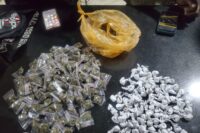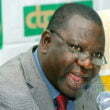ECONOMIC consultant Professor Oliver Saasa says Zambia might miss out on financial aid from the international community if it does not uphold good governance tenets such as respect for press freedom.
Speaking in an interview, Prof Saasa said although good governance and acquisition of financial aid from the international community for assistance in the fight against COVID-19 are not directly linked, the closure of Prime TV will raise a lot of questions from the international community.
The International Monetary Fund (IMF) has approved debt relief for 25 countries so far, with Democratic Republic of Congo, Malawi and Mozambique being Southern African countries benefiting from the aid.
“Firstly, we need to realise that COVID-19 or no COVID-19, Zambia is presently engaged in meeting the expectations of the IMF for the purpose of having a programme with them. We need, in fact, to be in good terms with people that have the ability to help us by way of providing balance of payment support like World Bank. [But] we need to demonstrate to the world that we are doing the right thing,” Prof Saasa said.
“Now what are these right things? Having debt sustainability strategies that will allow us to be less vulnerable if we get extra resources, then things would be easier. But we should be very mindful that beyond the IMF and the COVID-19, we have to be mindful that other tenets of good governance come into play. Legitimate questions might be raised when you meet these multilateral partners regarding how we have performed not only on the macro-economic front but also on the governance front. So for me, like what has just happened to Prime TV, because this is an institution of governance and freedom of speech and I know the World Bank in particular, perhaps even the IMF, the African Development Bank, they are actually looking at tenets of good governance.”
He urged the government to effectively apply tenets of good governance as this may ease the process of acquiring financial aid and attract more foreign investors.
“So, this Prime TV issue is a governance issue. It is not just to look at Prime TV as private business, they are making money, it is much more than that. They are making money, alright, and everyone must be proud to make money. In fact, the support we are now looking for from the international community is not just about treating people, it’s to make sure that the private sector will come out of this challenge of the Coronavirus resilient. Therefore, we are talking about business and Prime is also business. So, there are two things that can happen; the first thing is that there maybe apprehension to those that may give us money, there is no question about that; it will raise questions,” Prof Saasa added.
“Secondly and more importantly, it is not really receiving free money but to be able to be efficiently attractive to investors. Therefore, if there are challenges that show if you are a business and you do something wrong or something that government doesn’t find acceptable, then they oppose you; it is the same that seems to be happening to Mopani. So we must be very careful that we are actually treading a very thin line; yes we expect the international community not to hold us down because of failing to reach a programme with the IMF. But yes, at the same time, we have to be mindful of what we do, especially now; so that we are putting ourselves in a good manner that will allow those who want to help us to come forward freely.”
He said it was important not to demonise the private sector as it was key for economic growth.
“So, for me, we have to look at both; raising money from IMF for COVID-19 and demonstrating that we are also a responsible people…Because what would make the economy tick is the private sector; it is the private investment, not only the locals, perhaps we are having challenges now with respect to Prime TV, [and] also with foreign investors with respect to the two mining companies (Mopani and Konkola Copper Mines),” said Prof Saasa.
“I am praying that these would not be major issues in terms of assessing these resources which are available; which we must move a little bit faster to make representations…At the same time, I am saying it should be on us even if they don’t insist that we must exhibit good behaviour from the perspective of those that are our partners in development.”













3 Responses
Well articulated. The way we are treating our private companies leaves much to be desired, closing Prime tv the way they did was a clear demonstrations of lack of intolerance from divergence views. If we add Mopane and Kcm, it becomes even worse. The rest of the world is watching.
WE HAVE PUT MYOPIC PEOPLE IN LEADERSHIP,THEY DO NOT SEE ANYTHING WRONG WITH THE CLOSURE OF PRIME TV.
Politics aside prime TV was of substandard. Broadcast transmission was of poor quality. It was never a serious business. Only people who like cheap quality are crying the loudest. Especially, those buy Nakonde ndimwe mupanga nzuungo. Let’s be serious prime TV was just kantembe station that needed to be removed. ZICTA is to blame for allowing pime TV to operate. In my view it did not meet the requirements of setting up a station as everything about it was low standard.